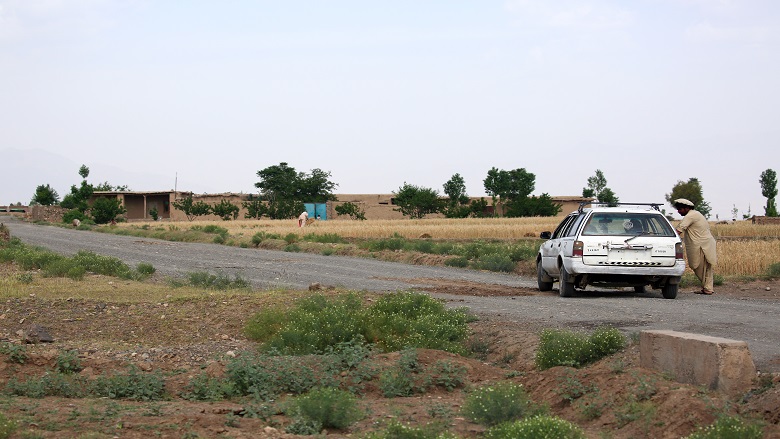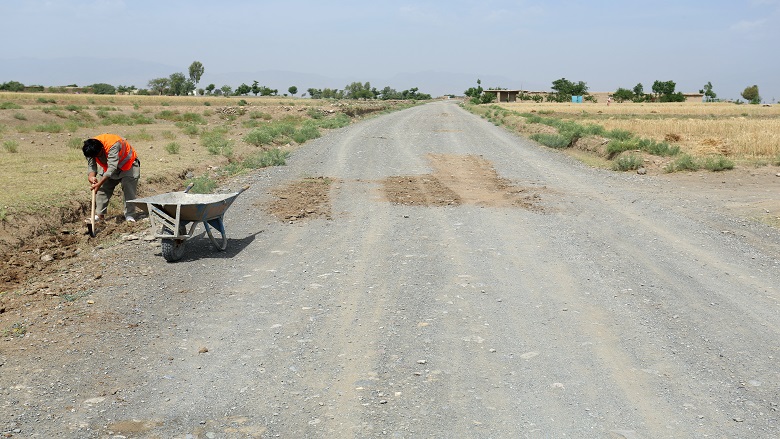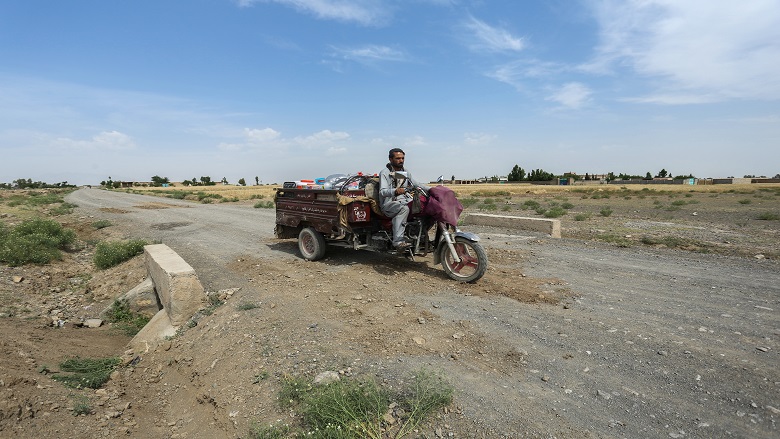Positive Impact on Villagers
ARAP’s road reconstruction efforts have had a positive impact on the lives of people in the area. “The project has connected many villages with each other as well as connected them with the market. It has also eased access to basic services and facilities for thousands of villagers in Tani district,” says Abdul Hadi.
Almost 15,000 people in the area have benefited from the six-kilometer road reconstructed by ARAP in 2014. ARAP, which aims to benefit rural communities across Afghanistan by improving access to basic services and facilities through all-weather roads, started its activities in the southeast zone of Afghanistan in 2012.
It is a follow-on project of the National Emergency Rural Access Program (NERAP). The project is expected to increase the number of people living within 2 kilometers of all-weather roads, reduce travel time to essential services, and enable rural communities to access these services more frequently.
ARAP is implemented by the Ministry of Rural Rehabilitation and Development (MRRD) and Ministry of Public Works (MPW) coordinated by Ministry of Finance (MoF) and supported by the International Development Association (IDA), the World Bank Group’s fund for the poorest countries, and the Afghanistan Reconstruction Trust Fund (ARTF).
The reconstructed Patlan road has also eased access to the local markets for farmers. Hazrat Ali, 21, a farmer from Sangi Village, says that the gravel road has made it easier for him to take his produce to the market. “In the past, it was very difficult for us to supply our vegetables to the market, but now it is very easy to carry the vegetables and move on the road,” he says.
Moreover, the improved road conditions have helped reduce transportation costs by half. “Previously, we paid 800–1,000 afghanis (about $11–$15), but now it only costs us around 400 afghanis,” says Ali.



